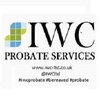A Probate Deed of Variation, often referred to as a Deed of Family Arrangement or a Deed of Variation, is a legal document that allows beneficiaries of a deceased person's estate to alter the distribution of assets specified in the will. This is typically done after the probate process has begun. It provides an opportunity for heirs to rearrange their inheritance, changing the way assets are distributed among them. It's important to note that all affected beneficiaries must agree to the changes outlined in the deed.
What Is a Probate Deed of Variation and How Does It Work?
A Probate Deed of Variation is essentially a legal agreement among beneficiaries to modify the terms of the deceased person's will. The process involves drafting a legal document that outlines the changes to be made, which is then signed by all relevant parties. The deed is registered with the relevant authorities, and once approved, the alterations take effect. This mechanism is often used to address unforeseen circumstances or rectify any perceived unfairness in the distribution of assets. However, it's crucial to seek legal advice to ensure the deed complies with all legal requirements.
What Are the Benefits of Using a Probate Deed of Variation?
Flexibility: One of the primary benefits is the flexibility it offers to beneficiaries. They can adapt the distribution of assets to better suit their individual needs and circumstances.
Tax Efficiency: A well-structured Probate Deed of Variation can potentially help in managing the tax implications of inheritance, ensuring a more tax-efficient distribution.
Avoiding Legal Disputes: By addressing potential disputes and dissatisfactions among beneficiaries early on, a Probate Deed of Variation can help prevent lengthy and costly legal battles.
Reflecting Changing Family Dynamics: Families evolve, and the original terms of a will may not adequately address new family dynamics. A deed of variation allows for adjustments to accommodate these changes.
Charitable Donations: It provides an avenue for redirecting a portion of the estate to charitable causes, allowing beneficiaries to support organizations important to them or the deceased.
What You Should Know About Probate Fixed Fee Services:
Probate Fixed Fee Services refer to a pricing model for legal services related to the probate process where a predetermined, fixed fee is charged, rather than billing based on hourly rates. This approach aims to provide transparency and predictability in terms of costs associated with obtaining probate and administering an estate.
What Is a Probate Fixed Fee and How Does It Simplify the Process?
A Probate Fixed Fee is a set amount charged by legal professionals to handle the probate process, from application to the distribution of assets, without additional charges based on the time spent on the case. This pricing model simplifies the process by offering clarity on the financial aspect of legal services. Clients know upfront what the cost will be, helping them plan and budget more effectively.
What Determines the Cost of Probate Fixed Fee Services?
Several factors influence the cost of Probate Fixed Fee Services. These may include the complexity of the estate, the number of assets involved, any disputes among beneficiaries, and the level of assistance required. The fee structure is typically determined after an initial assessment of the estate's particulars, allowing legal professionals to tailor their services to the specific needs of the client.
What Services Are Typically Covered by Probate Fixed Fees?
Probate Fixed Fee Services often cover a comprehensive range of tasks related to estate administration. These may include:
Application for Grant of Probate: Preparing and submitting the necessary documentation to obtain the legal authority to administer the estate.
Asset Valuation: Assessing the value of all assets in the estate, including property, investments, and personal belongings.
Debts and Liabilities: Identifying and settling outstanding debts and liabilities of the deceased.
Estate Distribution: Overseeing the fair and lawful distribution of assets among the beneficiaries.
Finalizing Tax Matters: Ensuring that all tax obligations, including inheritance tax, are addressed appropriately.
Legal Guidance: Providing legal advice and guidance throughout the probate process, addressing any legal complexities that may arise.
Understanding these aspects is crucial for individuals navigating the probate process, as it allows them to make informed decisions and ensures a smoother administration of the estate.


No comments yet